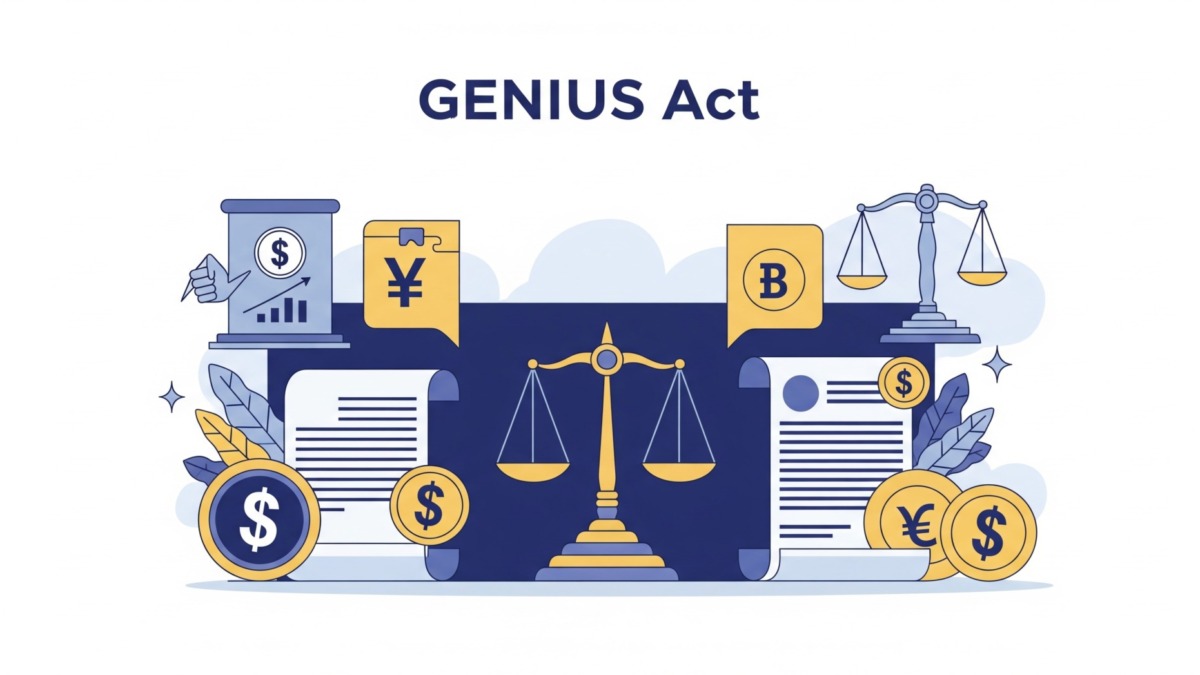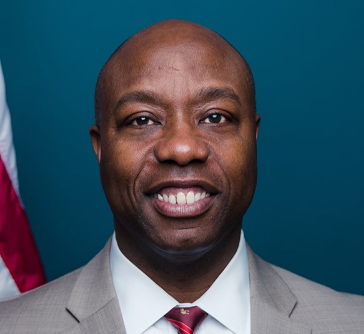Trump Signs GENIUS Act to Regulate Stablecoins as MTG Warns of ‘CBDC Backdoor’

- After passing the US House in a surprisingly bipartisan vote last Thursday, the GENIUS Act was signed into law by US President Donald Trump on Friday.
- Some critics of the new stablecoin laws, including Republican Representative Marjorie Taylor Greene, have said they’re a Trojan horse for a CBDC to be launched in the US.
- Others argue the GENIUS Act contains language explicitly preventing the US Federal Reserve from introducing a CBDC.
After months of legislative wrangling, the GENIUS Act was finally signed into law by US President Donald Trump on Friday 18 July, establishing for the first time a regulatory framework in the US for the burgeoning stablecoin market, which is currently valued at US$250 billion.
“We worked hard. It’s a very important act, the GENIUS Act. They named it after me,” Trump told the press gathered to watch him sign the act into law.
I want to thank you. This is a hell of an act.
 Donald Trump, US President
Donald Trump, US President The GENIUS Act had previously passed the US House on Thursday with a surprising amount of bipartisan support, backed by 206 Republicans and 102 Democrats. However, not everyone is happy with the act.
Outspoken Republican Marjorie Taylor Greene (MTG) — usually one of Trump’s staunchest supporters — has become one of the most strident critics of the new stablecoin laws. MTG claims they’re essentially a “backdoor” to introduce a central bank digital currency (CBDC).
Posting on X before the Thursday House vote, Greene said that stablecoins may seem great on the surface but, “behind the scenes there are the functional surveillance capabilities of a CBDC.” She said the GENIUS Act doesn’t contain any clause banning CBDCs and House leadership wouldn’t allow any to be added through amendments. After the vote Greene further explained her concerns around the GENIUS Act:
The Federal Reserve has been planning a CBDC for years and this will open the door to move you to a cashless society and into digital currency that can be weaponized against you by an authoritarian government controlling your ability to buy and sell. Do you actually trust your government to never do that to you? I don’t.
 Representative Marjorie Taylor Greene
Representative Marjorie Taylor Greene While the GENIUS Act doesn’t explicitly ban CBDCs, a separate bill that also passed the US House last week — the Anti-CBDC Surveillance State Act — does ban CBDCs. That bill is now headed to the US Senate for consideration.
Crypto Industry Concerns About GENIUS Act
Bitcoin true-believer, Justin Bechler, was scathing in his assessment of the GENIUS Act writing that it, “mimics Nixon’s 1971 playbook: a centralized power structure imposes sweeping change without consent using vague threats and patriotic language to mask the true objective: monetary control.” Adding “then it was ‘protecting the dollar.’ Now it’s ‘protecting innovation.’” In a later post Bechler made his concerns even more explicit, writing:
They’ll claim it’s not a CBDC because the Fed didn’t issue it, while ignoring that it’s functionally identical, state-controlled and enforced through regulated fully-compliant middlemen. tl;dr It’s a CBDC.
 Justin Bechler
Justin Bechler Back in March, Jean Rausis, the founder of decentralised exchange SmarDex, wrote on X that “the GENIUS stablecoin bill is a CBDC trojan horse.” He then said in a post from May, “this should be clear to everyone: stablecoins are CBDCs in disguise. ‘Crypto’ without decentralization is nothing.”
Not everyone agrees that the GENIUS Act is a secret plot to establish a CBDC in the US. High profile crypto journalist and host of the Crypto In America podcast, Eleanor Terrett posted that text from the GENIUS Act does in fact explicitly ban the creation of a retail CBDC.
Related: Stablecoins Over CBDCs: Will Australia Follow the US Regulatory Drift?
“Many of the House members who voted no today had concerns with the GENIUS Act possibly enabling a CBDC. However, there is language in GENIUS that would explicitly prohibit the Fed from creating a retail CBDC.”
She pointed to a section of the bill that indicates it can’t be construed as expanding the Fed’s authority to offer services directly to the public, which she believes means it can’t authorise anything that veers into CBDC territory.
Senator Tim Scott echoed this argument, telling Fox News that the GENIUS Act’s language prevents any new powers being granted to establish a CBDC:
The GENIUS Act simply says that nothing in this bill actually expands the authority at the Federal Reserve. So they do not have expansive authority, they cannot go in that direction.
 Senator Tim Scott
Senator Tim Scott 





